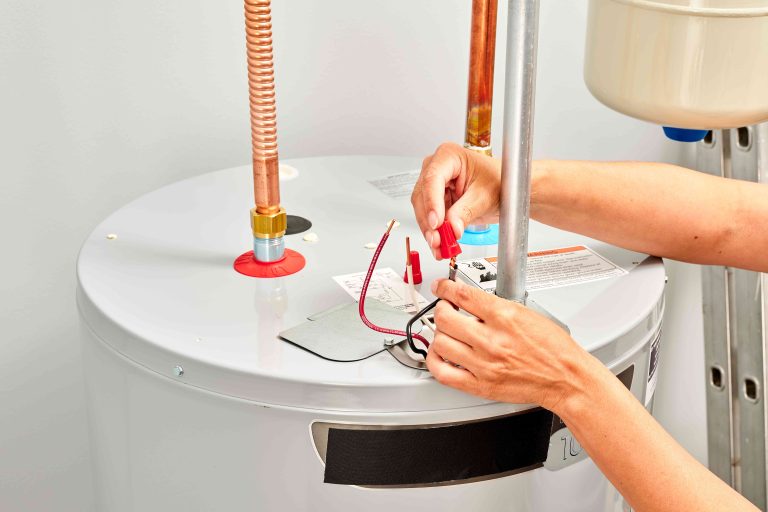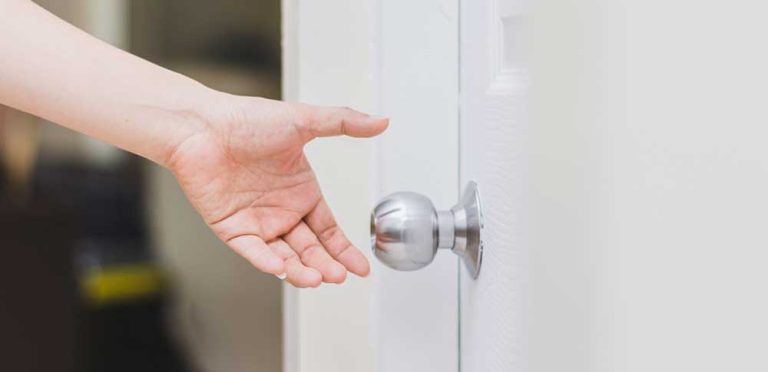A Pressure Washer Damage Concrete?
The use of a pressure washer to clean concrete surfaces can be very effective, but it can also cause serious damage if not used correctly. Pressure washing can cause etching, pitting, and cracking on concrete surfaces, so it’s important to understand how to use a pressure washer safely and effectively. This article will discuss the potential damages that can occur to concrete surfaces when using a pressure washer and how to minimize the risk. It will also provide tips for preventing damage when pressure washing concrete.
What is a Pressure Washer?
A pressure washer is a powerful tool that uses high-pressure water to clean surfaces quickly and efficiently. It is a great way to remove dirt, grime, and other debris from hard surfaces such as concrete. Pressure washers can be used in a variety of ways, including to clean driveways, decks, patios, and siding. But can a pressure washer actually damage concrete?
The answer to this question is both yes and no. If used incorrectly, a pressure washer can cause damage to concrete surfaces, but if used properly and with the right nozzle settings, it can be a very effective cleaning tool. The key to using a pressure washer on concrete is to understand the different nozzle settings and to use the lowest setting possible. Higher pressure settings can erode the concrete, leading to cracking and other damage. Additionally, using the wrong nozzle can cause damage as well, so it is important to understand the various nozzle settings that are available and how to use them correctly.
How Does a Pressure Washer Work?
A pressure washer is a powerful cleaning tool used to remove dirt, grime, mold, and other debris from surfaces. It works by shooting a powerful stream of pressurized water at the surface, which is then blasted away by the force of the water. But with such powerful force, it’s worth asking the question: can a pressure washer damage concrete?
To answer this question, it helps to understand how a pressure washer works. A pressure washer consists of two main components: a pump and a motor. The pump is responsible for compressing the water, while the motor powers the pump and generates the pressure necessary for cleaning. Depending on the type of pressure washer, the motor can be electric, gas, or diesel-powered. Depending on the pressure washer model, pressure can range from a few hundred pounds per square inch up to several thousand pounds per square inch.
The pressure of the water, combined with the nozzle size, determines the cleaning power of the pressure washer. A larger nozzle size will create a wider spray pattern, while a smaller nozzle size will create a more focused spray pattern. This allows users to customize the pressure washer to suit their needs, making it possible to clean a variety of surfaces without damaging them.
So, to answer the question: can a pressure washer damage concrete? The answer is no, provided that the pressure and nozzle size are properly adjusted. A well-maintained pressure washer can be used to effectively clean concrete surfaces without damaging them.
What is Concrete and How is it Damaged?
Concrete is a composite material made up of cement, aggregate (such as gravel, stones, or sand), and water. It’s one of the most widely used construction materials in the world and is known for its durability. But like any other material, concrete can be damaged. So, can a pressure washer damage concrete?
The answer is yes, it is possible for a pressure washer to damage concrete. The high-pressure water jet can erode or chip away at the surface of the concrete, leading to cracks, crumbling, and other damage. Pressure washers can also force water into small cracks and crevices, which can lead to further deterioration of the concrete. Additionally, the high-pressure water can wear away sealants and protective coatings, leaving the concrete vulnerable to further damage.
It’s important to note that while a pressure washer can damage concrete, it can also be used to clean and maintain concrete surfaces. When used correctly, a pressure washer can remove dirt, grime, and other materials from the surface of the concrete, leaving it looking like new. To ensure the safety of the concrete, it’s important to use the correct pressure setting and to keep the washer moving while in use.
Potential Risks of Using a Pressure Washer on Concrete
Using a pressure washer to clean concrete surfaces is a fast and easy way to make them look like new. But, pressure washers can be powerful tools and the wrong settings or improper use can lead to serious damage. It is important to understand the potential risks of using a pressure washer on concrete and how to mitigate them.
The most common risks associated with using a pressure washer on concrete are: chipping, cracking, or pitting. Chipping and cracking occur when the washer is used at high pressure, because the intense force of the water can cause the concrete to chip away or crack. Additionally, using a nozzle that is too narrow can lead to pitting, which can create a rough surface.
Fortunately, there are steps to take that can help prevent damage to concrete surfaces. For example, using a nozzle with a wide angle spray pattern will reduce the pressure of the water, and using a nozzle with the widest angle possible is best. Additionally, keeping the pressure washer at least 10 inches away from the surface and moving the nozzle in a consistent pattern will help ensure that the surface is cleaned without causing damage.
Using a pressure washer can be a great way to make concrete surfaces look like new, but it is important to understand the risks and how to mitigate them. By understanding the potential risks of using a pressure washer on concrete and taking appropriate steps to mitigate them, it is possible to avoid damage and maintain a beautiful concrete surface.
Ways to Minimize Damage to Concrete While Pressure Washing
Pressure washing is an effective way to clean surfaces such as concrete, and while it usually does a great job, there is a potential to cause damage if not done correctly. When used improperly, a pressure washer can cause etching, which can strip away the protective finish and leave your concrete vulnerable to staining and other damage. To keep your concrete safe while pressure washing, here are a few tips for minimizing potential damage.
First, start with the lowest pressure setting on your pressure washer and gradually increase the pressure until you find the right setting for your particular cleaning job. Be sure to keep the pressure washer nozzle at least 18 inches away from the surface you are cleaning. If you get too close, you risk etching the concrete.
Second, use a wide fan-style spray nozzle, rather than a single stream nozzle. This will reduce the pressure in a larger area, and distribute the spray more evenly across the surface.
Finally, be sure to use cleaning detergents specifically designed for pressure washers. These will be milder than other types of detergents, and less likely to cause damage.
Using the Right Detergent to Clean Concrete
Pressure washers are a great way to quickly and effectively clean a variety of surfaces, including concrete. However, it is important to use the right ingredients when cleaning concrete. If the wrong detergent is used, it could cause damage to the surface. It is essential to understand how to use the right detergent to clean concrete without damaging it.
The type of detergent you use will depend on the type of concrete you are cleaning. Acids are a popular choice for cleaning concrete, but they can damage the surface if used in conjunction with a pressure washer. Alkaline detergents are the best choice for pressure washing concrete, as they are designed to break down dirt and grime without damaging the surface.
It’s also important to use the right concentration of the detergent when cleaning concrete. Too much detergent can cause an excessive buildup of soap on the surface, leading to damage. The amount of detergent you need to use will depend on the type of concrete you are cleaning and the type of dirt or grime you’re trying to remove.
When using a pressure washer, always wear protective clothing and use eye protection. It’s also important to check the manufacturer’s instructions before using any detergent. Using the wrong detergent can cause damage to the surface, so it’s important to take the time to get the right one.
FAQs About the Can A Pressure Washer Damage Concrete?
1. Will a pressure washer damage new concrete?
A: No, a pressure washer will not damage new concrete. However, if the pressure is too high, it can cause damage to older concrete surfaces.
2. Can a pressure washer remove rust stains from concrete?
A: Yes, a pressure washer can be used to remove rust stains from concrete. However, caution should be taken to ensure the pressure isn’t set too high, as this could cause damage to the concrete.
3. Can a pressure washer damage concrete pavers?
A: Yes, a pressure washer can cause damage to concrete pavers if the pressure is too high. To avoid damage, it’s best to use a lower pressure setting when cleaning concrete pavers.
Conclusion
Overall, it is possible for a pressure washer to damage concrete. However, this can be prevented by understanding the correct pressure setting to use for the type of concrete surface being cleaned, and by using a wide fan tip nozzle. By following these steps, it is possible to clean the concrete surface without causing any damage.






